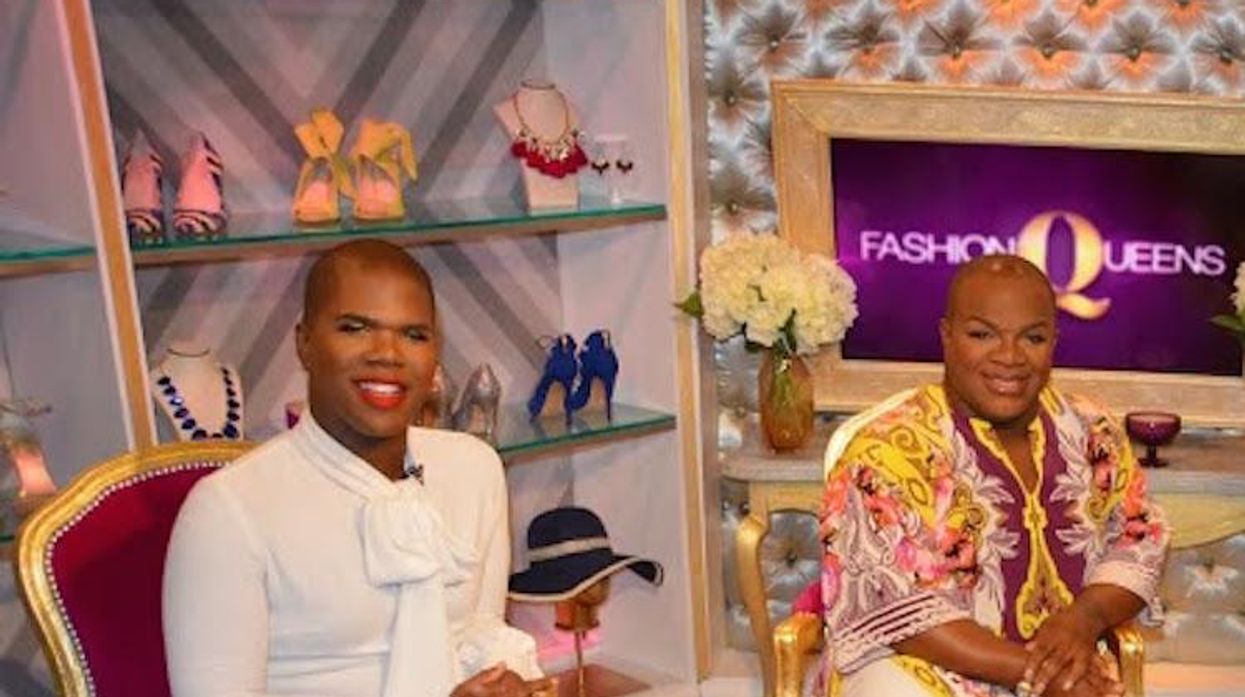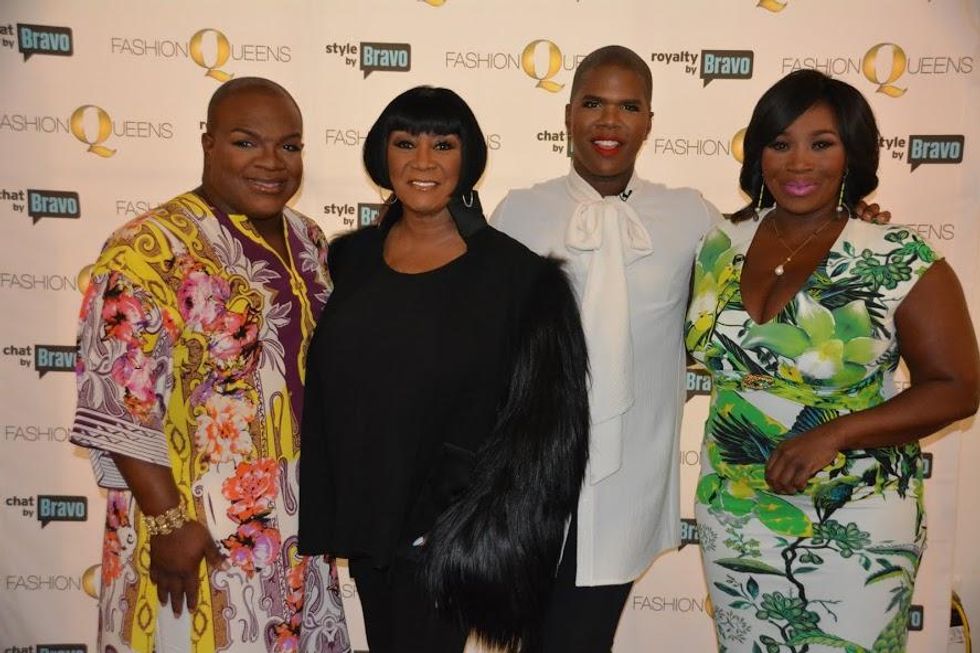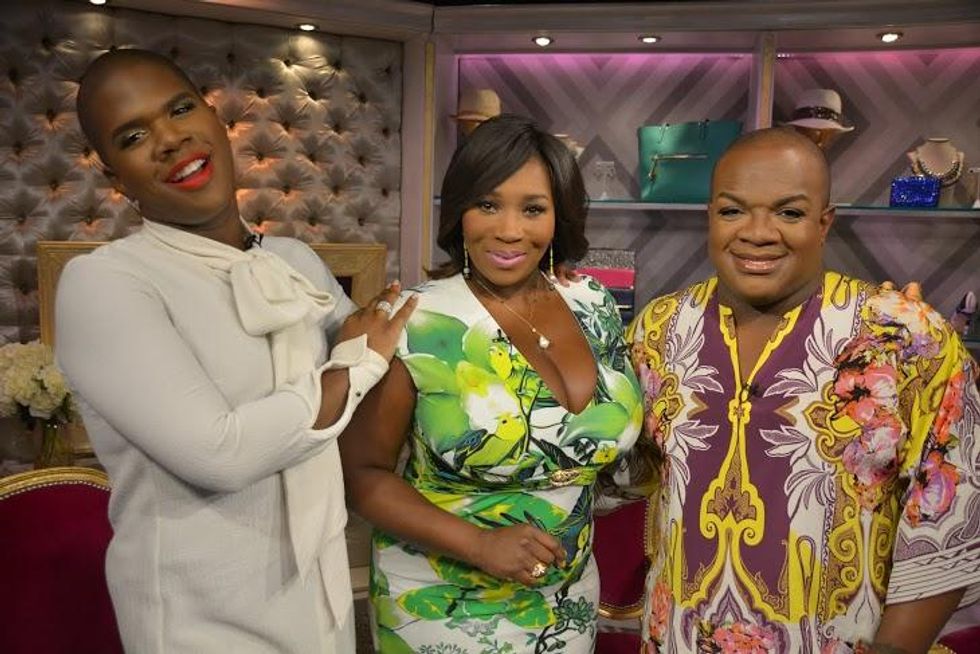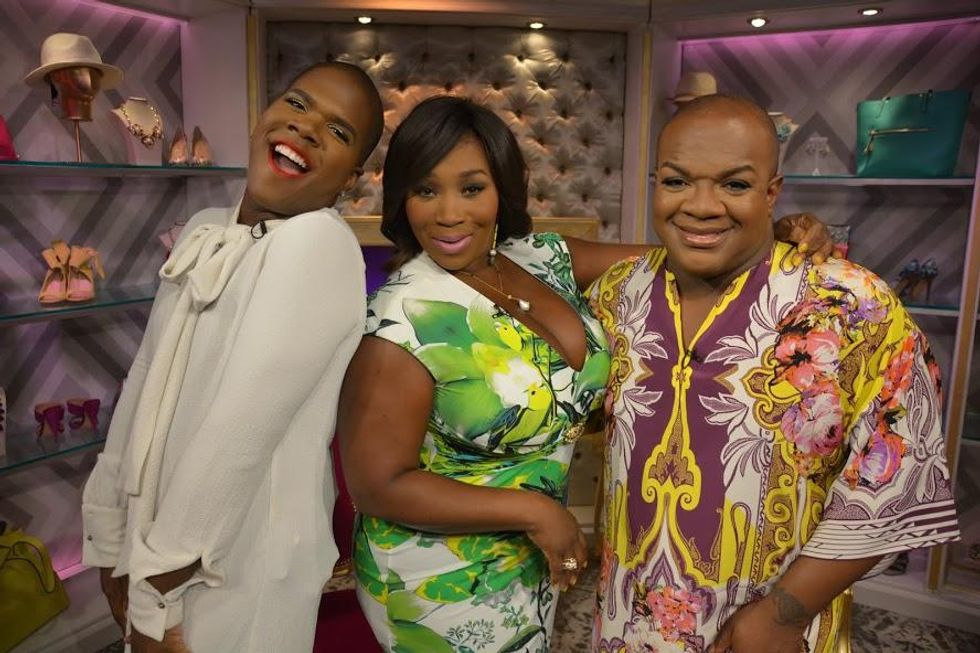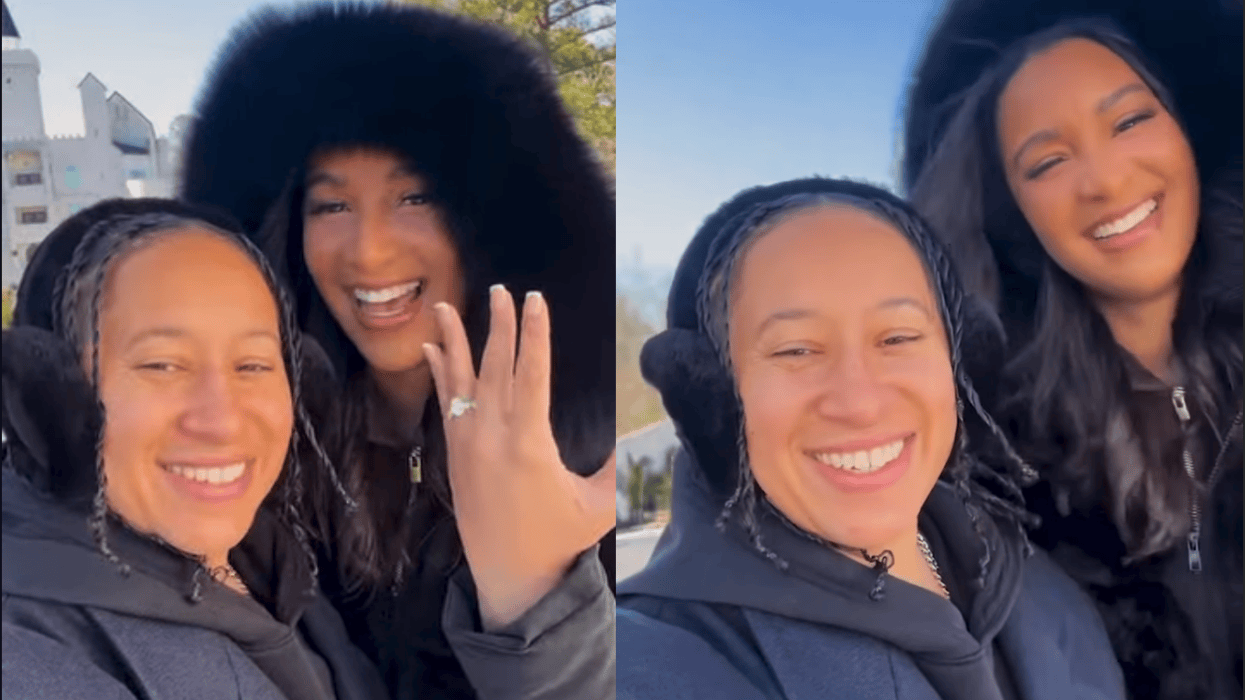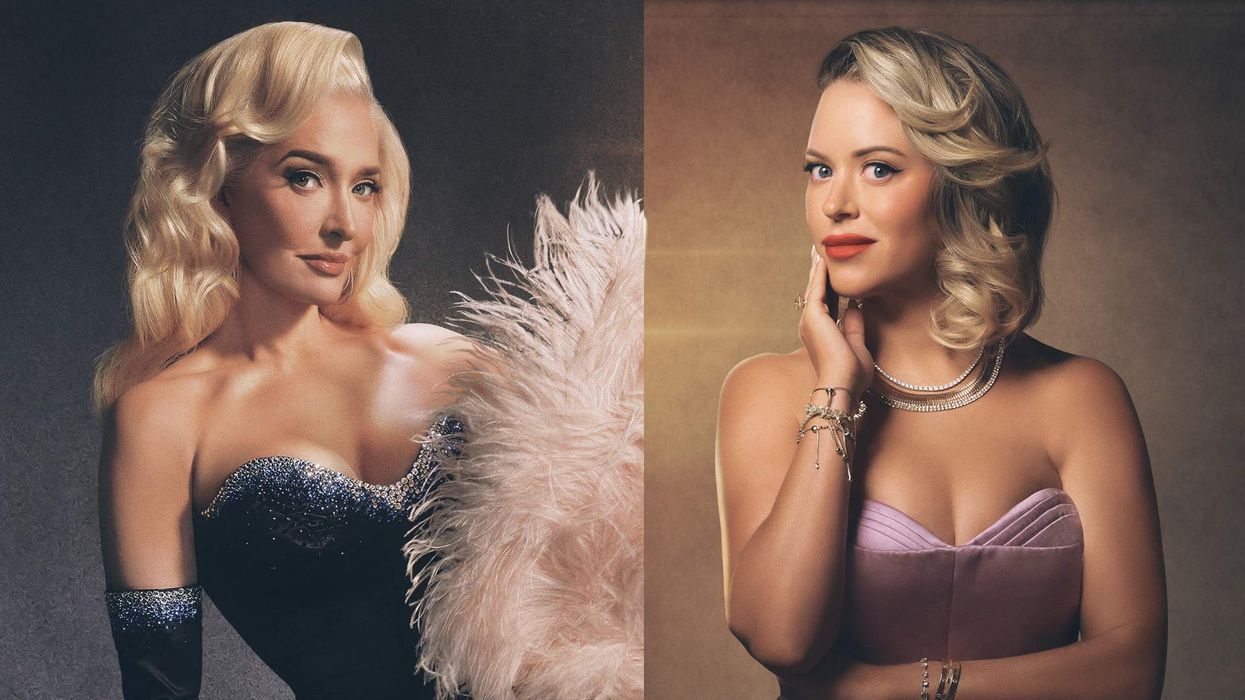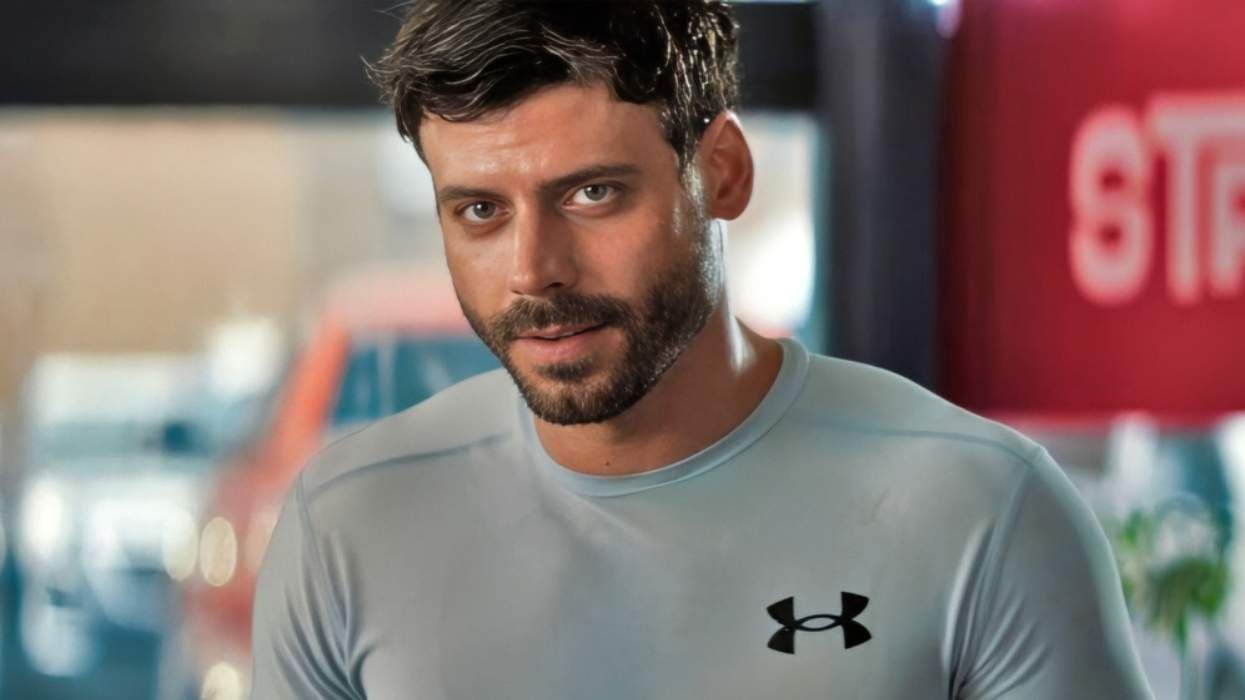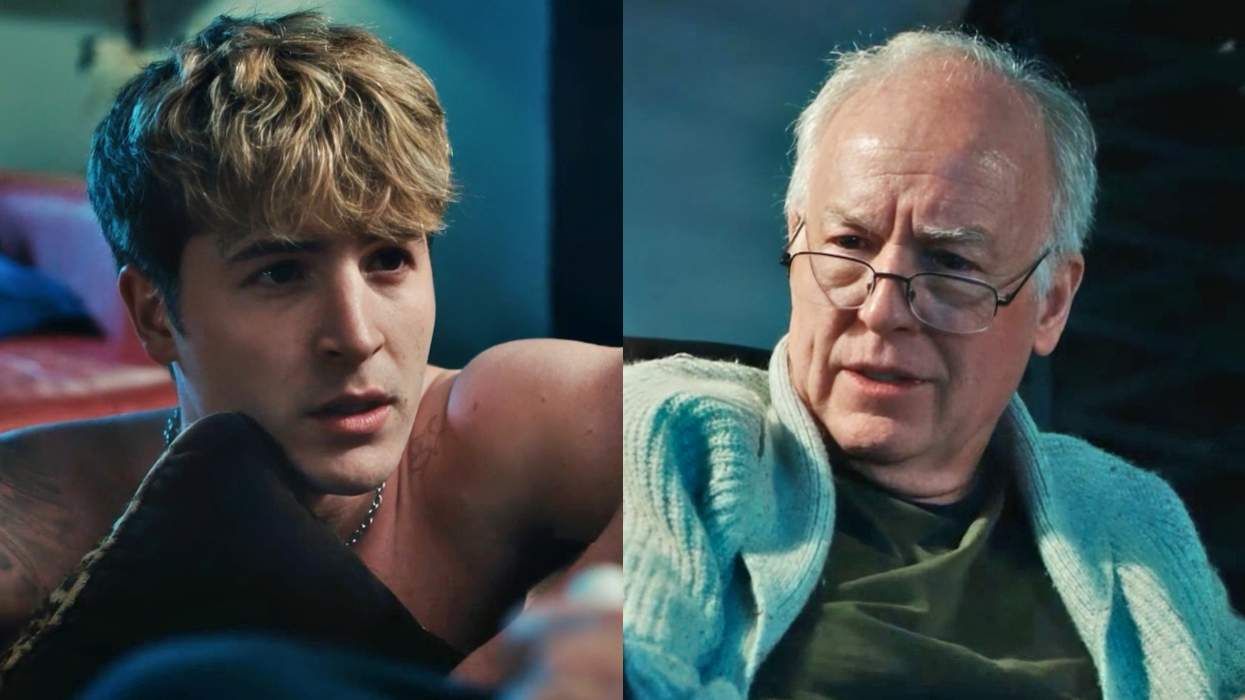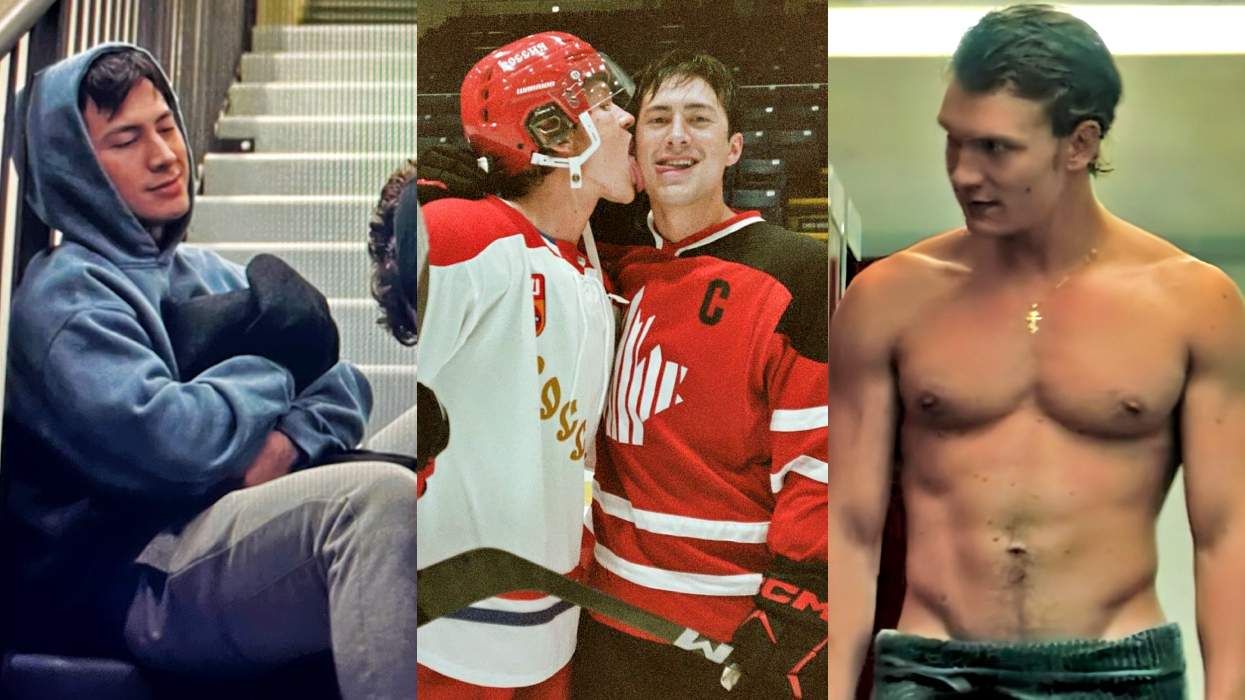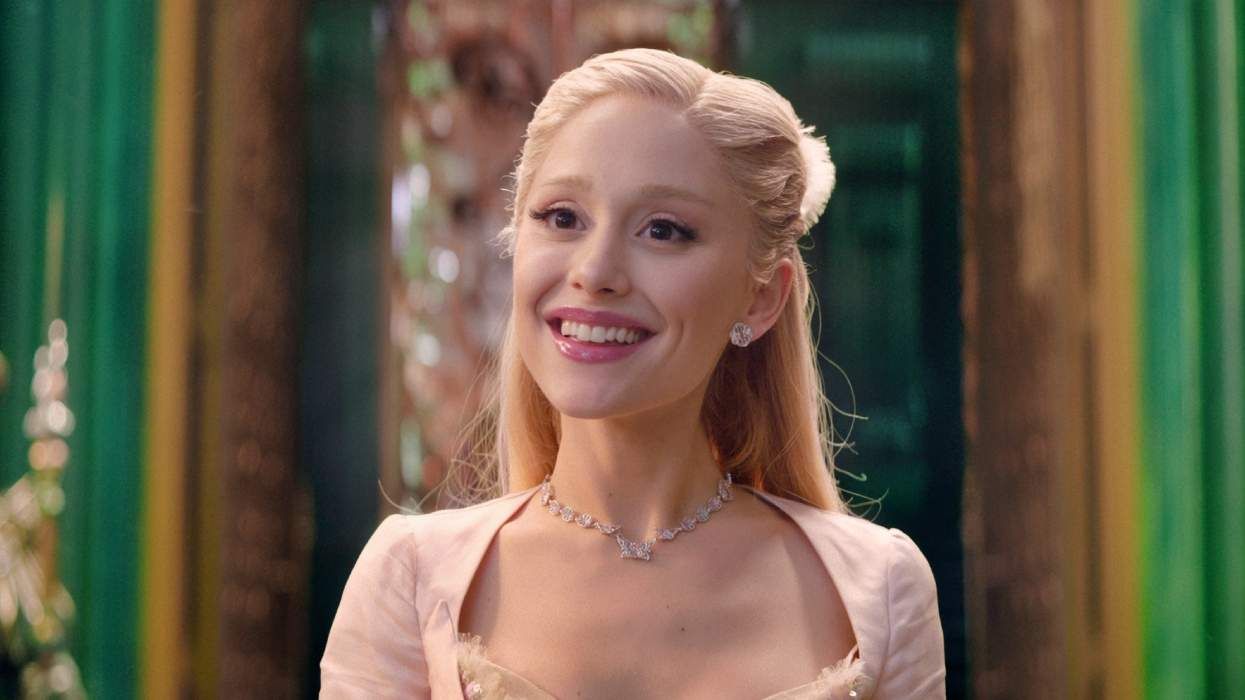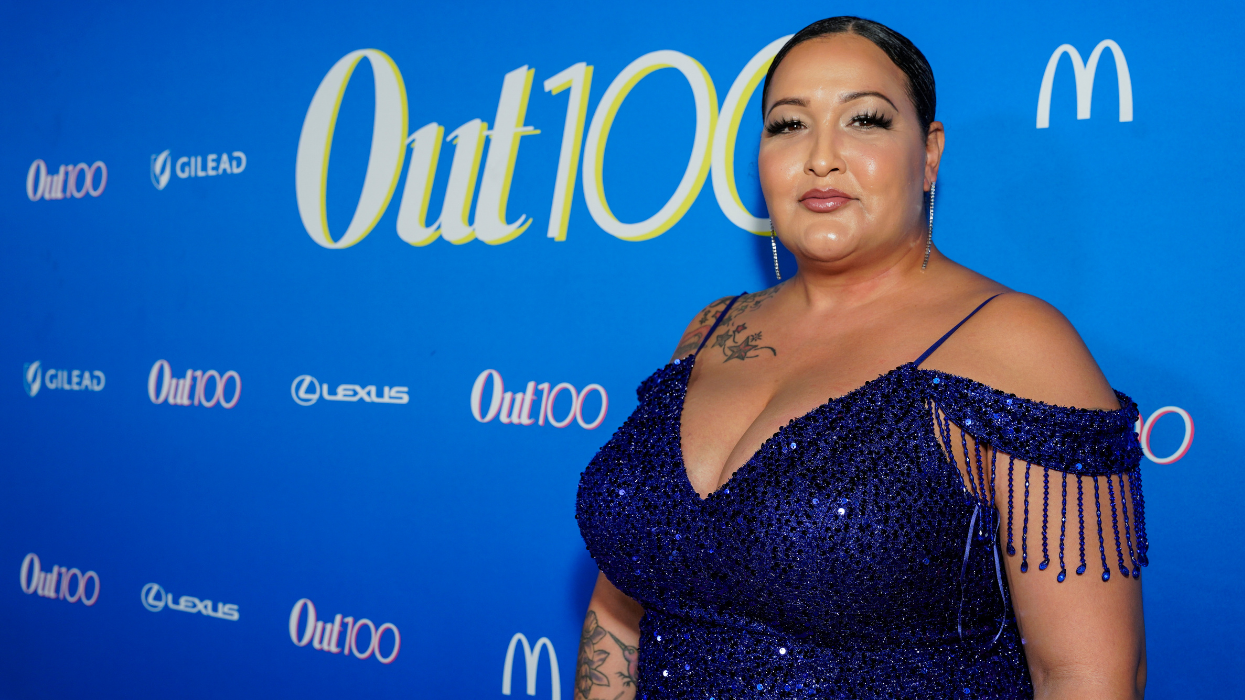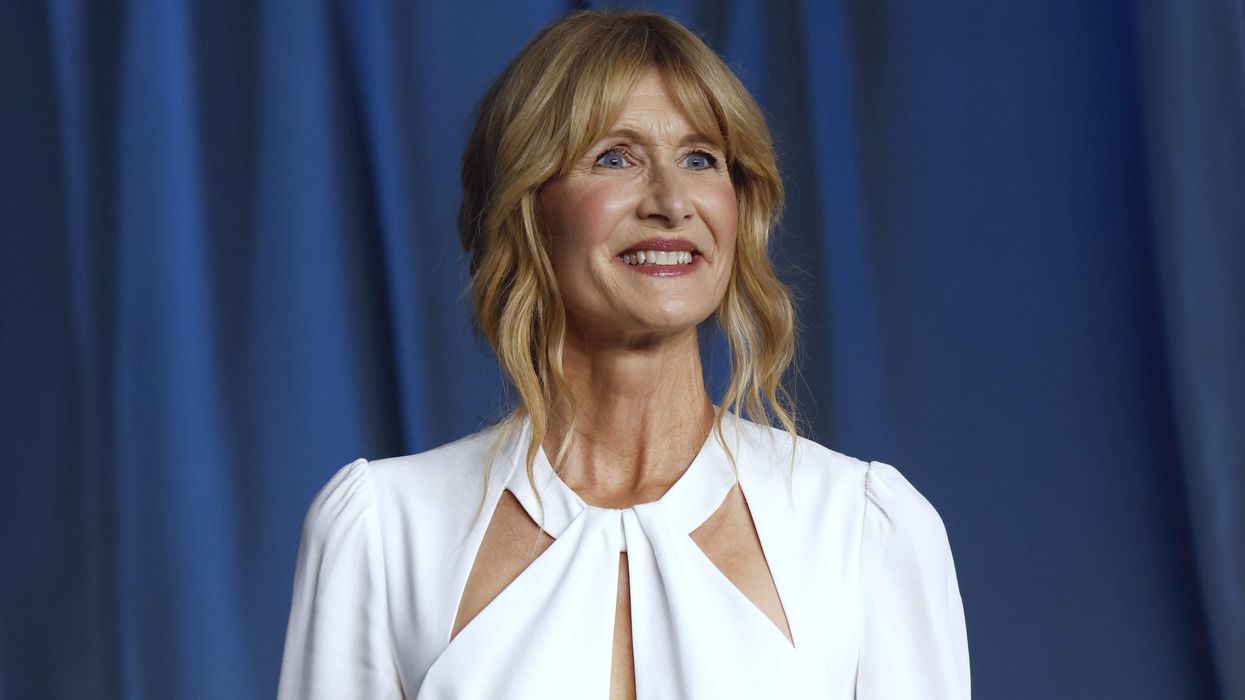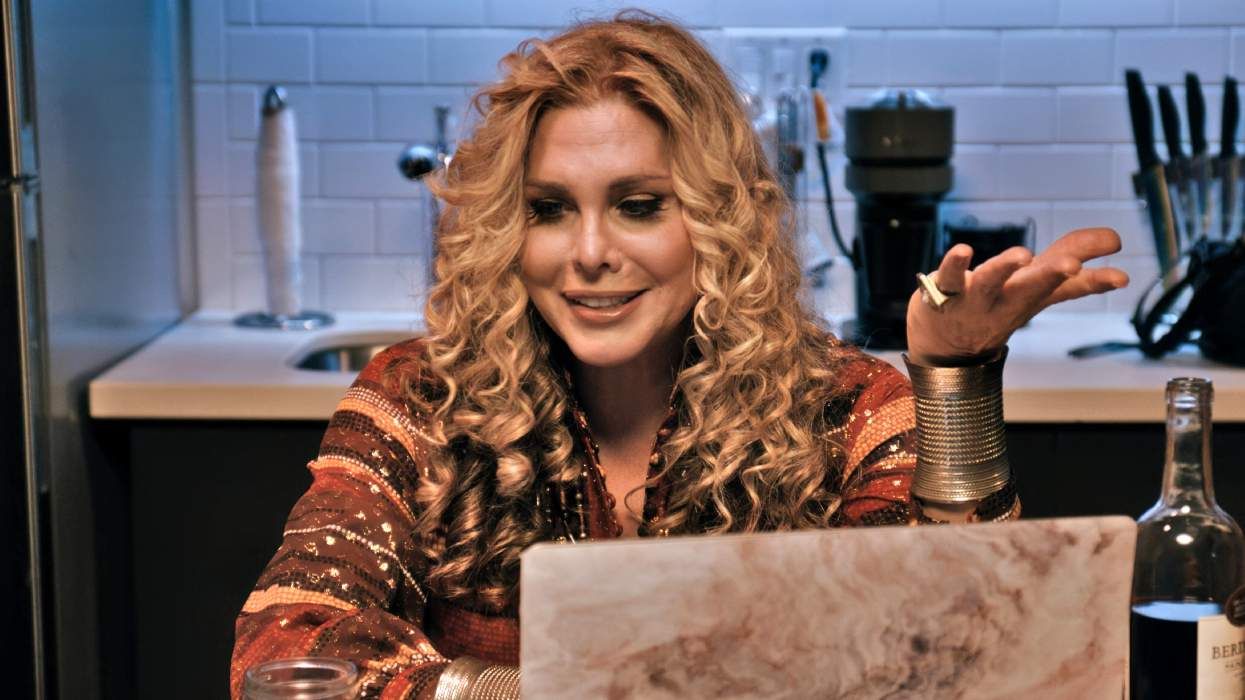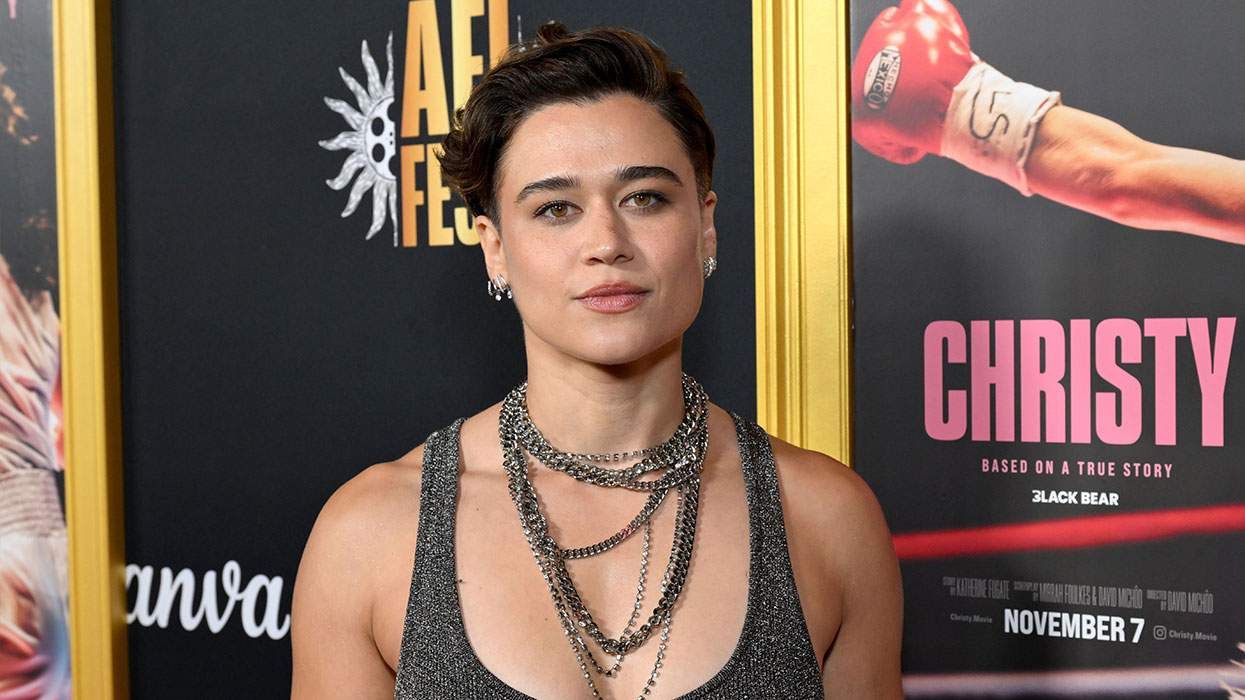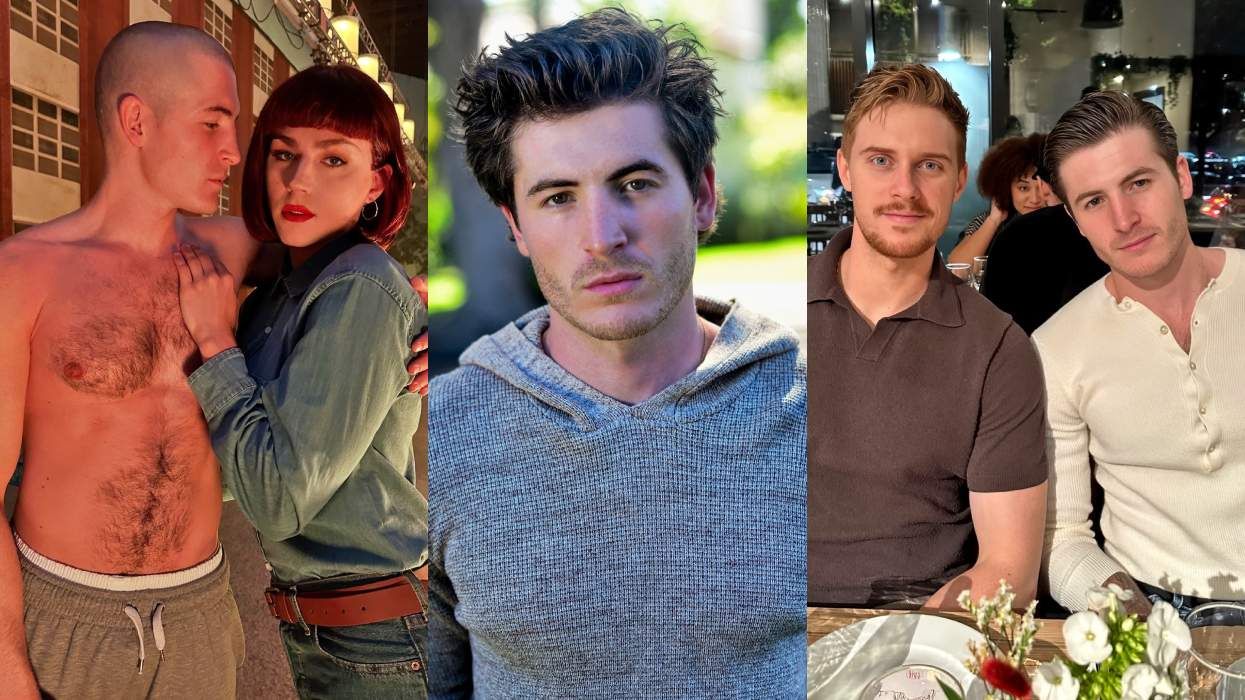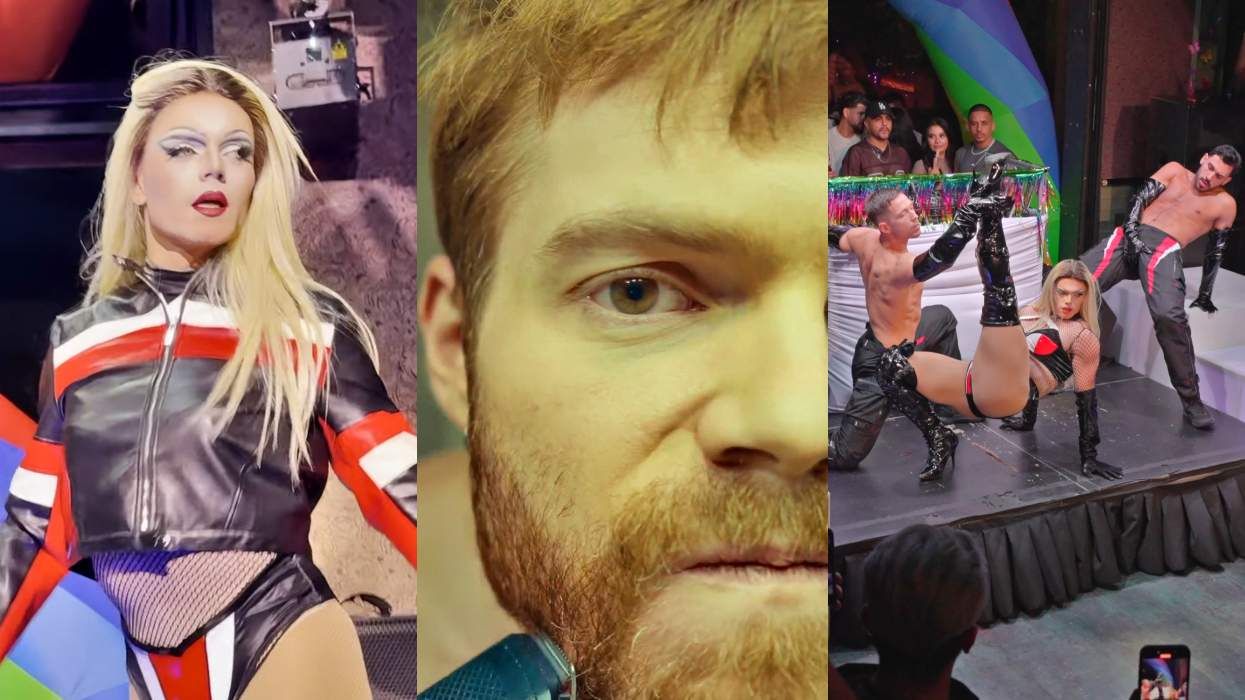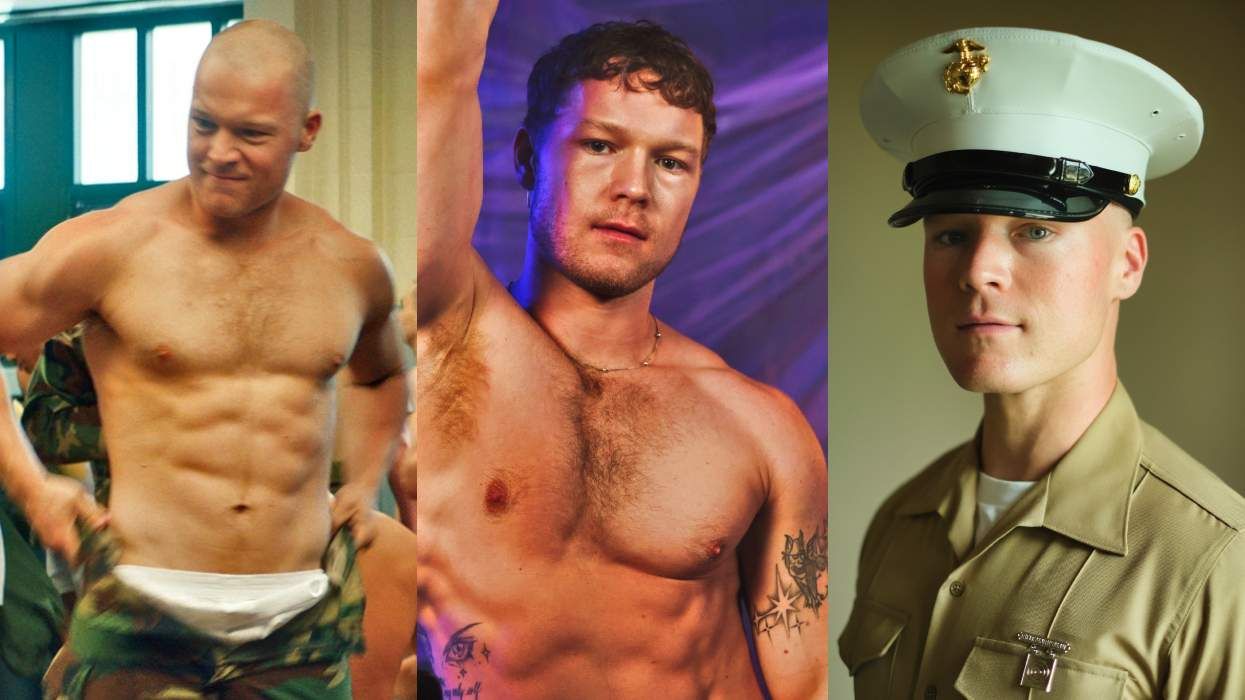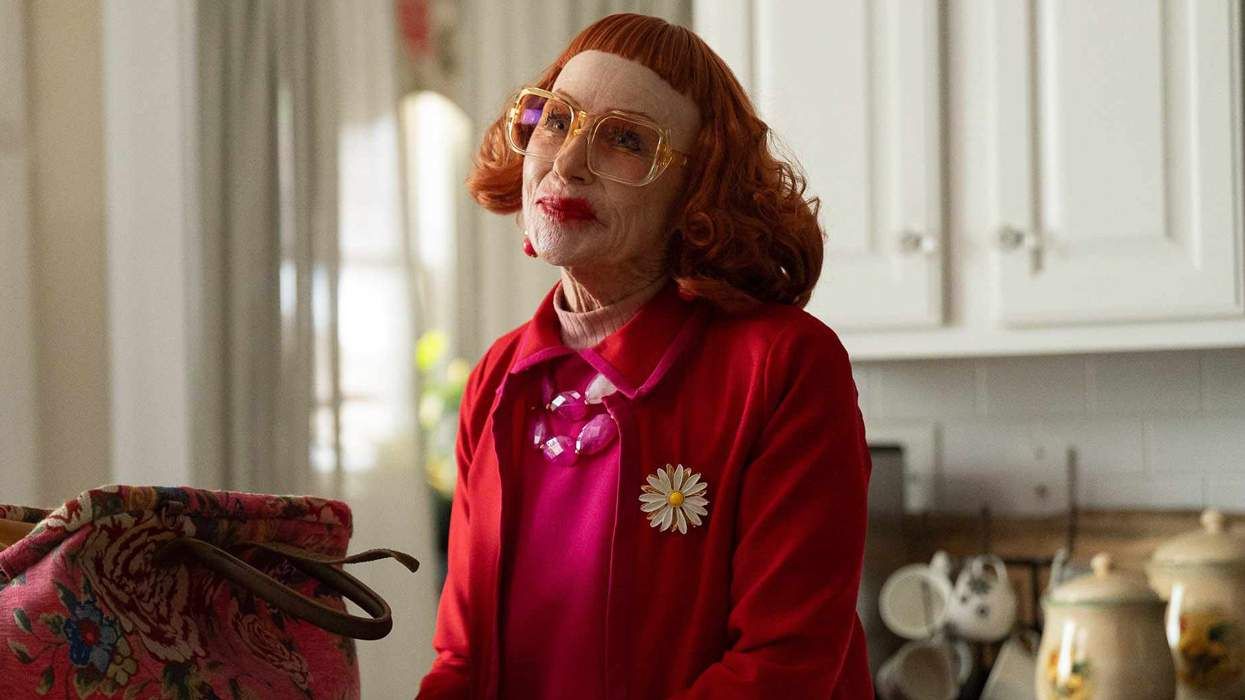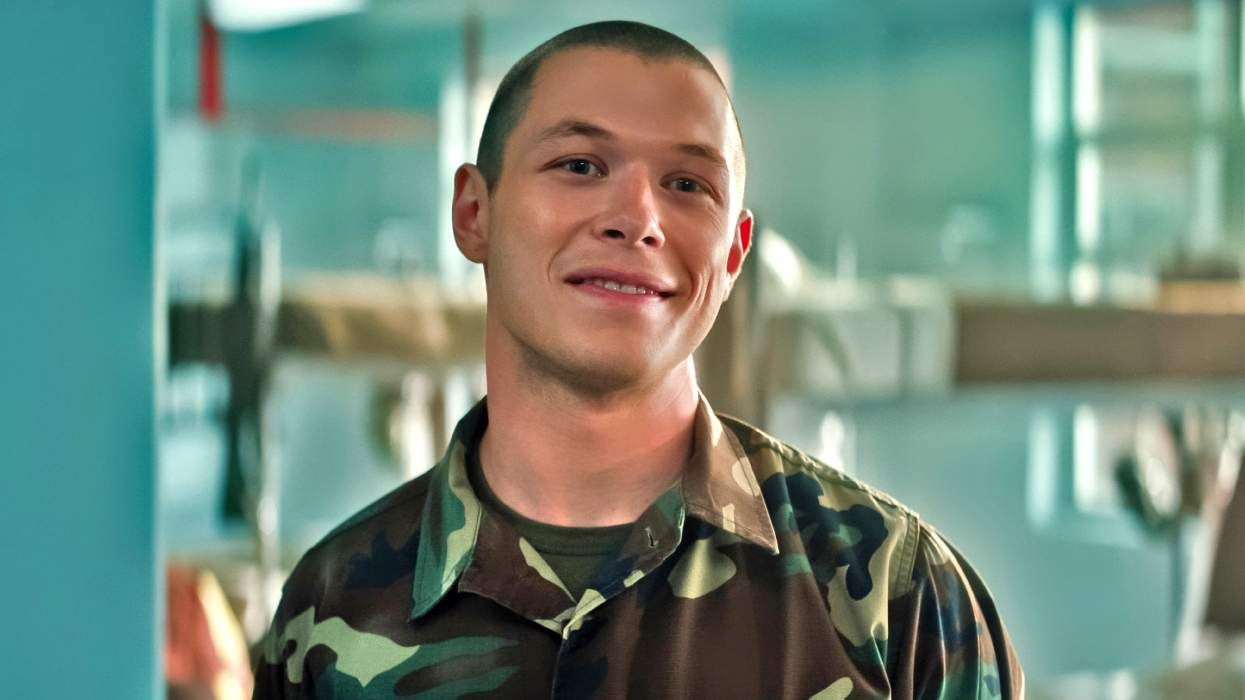There's a lot of talk of moments with Miss Lawrence (nee Washington) and Derek J (nee Johnson), hosts of Bravo's surprise hit, Fashion Queens. There are acting moments, reality moments, healthy moments, and then, of course, there's the moment of which they are very much a part.
Related | Gay Black Lives Matter
Television, still perhaps the most important arbiter of American culture aside from McDonald's Dollar Menu, is having a moment of racial clarity by embracing diversity in depictions of queer characters and stories like never before. But before Orange was the new black and Lee Daniels was making that "fuck you" money, Miss Lawrence and Derek J were striding in 6-inch heels on The Real Housewives of Atlanta.
Along with RuPaul and his eponymous Drag Race, Lawrence and Derek were the few dark, gay faces on television -- painted faces relegated to cable and playing second-fiddle to Nene and crew. But with Fashion Queens, now in its third season, the pair have taken center stage with sister in shade Bevy Smith, slaying in the ratings as often as they do with their caustic commentary.
The show (which airs Sundays at 11:30 on Bravo) has expanded to include higher profile guests such as Tyson Beckford and Janelle Monae. But when I sat down to kiki with Miss Lawrence and Derek J about -- as I lovingly refer to it -- "gay shit and black shit" -- Miss Patti LaBelle had just finished giving the Queens and everyone in the audience all the life they could possibly need.
Out: So, Miss Patti LaBelle. How was that for you, meeting her and all that?
Miss Lawrence: Well, it was everything to me. As I said to her on the show, she's like one of the adopted founding mothers of drag -- meaning that she understood what it means to give a total, complete costume look. She understood what it means to "sell it" and to add to that, she's beyond talented. She gets that sometimes you have to capture the attention of people and then let them get into the talent. So, that's kind of been my story growing up. A lot of people just kinda got into the image of me and then they realized, he's talented as well.
Derek J: I mean, Patti LaBelle is iconic, epic, you know. So I was ecstatic just to have her here in general. It was an amazing experience.
She's very humble. For someone who's been in the business for that long, to have done all that she's done, she's very humble. I love what she said about using her platform to do good. As gay black men on national television, how do you feel about having this platform to speak and share your opinions?
ML: A friend of mine, a professor at a certain college, called me the other day and asked if I would mind speaking to his students really quick. And one of the questions he asked me was, What are the pros and what are cons of being who you are and having a platform?
I didn't get it at first -- I didn't know that I was making an impact on some gay men. I appreciate it and I appreciate that it is recognized on any level. It doesn't have to be a big award show moment or anything like that. The fact that, just me living in my authentic truth and being who I am, even if one person tells me that because of you I was able to find my inner being and adapt to who I was placed here to be, that does a whole lot for me. So, that within itself is the pro for me.
One of the cons to it is that being flamboyantly gay -- which I like to simply call just being confident and comfortable in my own skin -- and black, I've experienced a lot of not only racism, but sexism as well. Oftentimes, I'm shunned out of a lot of things simply because there's this ideal image of what you're supposed to be if you're a black man, and then to add to it that fact that I'm gay. I experience homophobia a lot within my own community, as well as the heterosexual community. But that's what keeps me pushing. I know that if I've made it this far, being on national television every week and having someone like Andy Cohen give me that opportunity, I know I'm moving in the right direction. I know that there's going to be more to come.
DJ: I don't think that either one of us really knew what we were doing, we were just being authentically ourselves. We just thought we were doing us, so I didn't realize it went past us just "doing us" until a mother one day said to me, "I wanna tell you thank you, because you helped me understand my son and you gave us a medium, a place where we can talk, a place where we can have a conversation." When we got Fashion Queens, it just took us to a whole other level because it took us out of sidekick mode and put us in the forefront as our own talent and as our own people.
With that said, I feel the obligation -- there aren't many gay celebrities that are out and black -- there's like four. (laughs) There's RuPaul, there's us and there's Don Lemon. (laughs) We're just talking about what it is. There's not many of us representing. So, when I go to a different city, if it's a small city, I make sure I go to some kind of gay something, because our presence should be seen. It should be like, I'm here and I support you and then they support me.
ML: Derek is very much that way, and I've told him several times, that that's something I really admire about him. I'm a person that a lot of times, stays in my head. So, I stopped going to a lot of gay clubs -- I wouldn't go to straight clubs anyway. I've kind of turned into an introvert. I hate it when gay men, gay promoters, idolize people and pay them all this money to come to the gay clubs when they are some of the main ones who have such insipid attitudes against the LGBT community.
It is a form of hypocrisy. You can't say that you want respect and you want equality, but then you sit and idolize people and invite people into the circle that don't have the same views of respect. It's one thing to be confused or to not fully understand the culture, but to be judgmental towards it is a whole other thing.
To me you should not celebrate someone like that. Now don't hate them, because they don't know any better. Judgement isn't who we are, that's a learned behavior. It's a generational thing. It's a chain that continuously grows and we haven't figured out a way to break it yet, but the only thing we can do is do our work. We have to stand for something or else we'll continue to fall and continue to fall for the foolishness.
I know especially in the last few months, the visibility for gay black men has increased exponentially, with shows like Empire. There's just a moment happening where you have (relatively) a lot of queer people of color on television. What do you think caused this increase in visibility?
DJ: It's just time. It's a moment now where you don't have to be afraid. You don't have to hide yourself. I don't personally understand that, because I never went through that moment.
What moment?
DJ: The moment of having to not be you, so I don't understand those feelings. I get it, but I don't understand the feelings of it. You know, we all went through our high school phase when you're not saying that you're gay, but in my adult life I never had to go have a girlfriend or get married. Now in the world that we're in, none of that matters. You have to think about the kids that are growing up now. They are like I am bisexual, I am gay, I'm straight, I'm asexual. They're saying all these things now in elementary school, high school, and junior high.
That's not how it was when I was growing up. It's an open moment now where it's more accepted if somebody does come out. They just say they are. A lot of people that are now doing it -- I can't say coming out, because they've always been gay. They're not making a "come out" moment, they just happen to be a gay director, a gay actor....
ML: For me it started all the way back to the Freddie Mercury days. It started back in the Sylvester days, it started back in the Boy George days, the RuPaul days, fast forwarding to the Derek J and myself days, of just people standing in their truth. Because of that movement, somebody else is going to be able to live in their truth or be as comfortable, and there are going to be more doors open.
What I've always gotten sick of is people saying, "Oh, it's more than just gay men that are like Miss Lawrence and Derek J." OK, well then where are they? Where are they? It is not my fault that I chose to be very confident in who I am that I got the attention from a major network like Bravo. I was just doing my work and being me. It all came to me. I never went after it. It all came to me. Thank God, but it all came to me.
DJ: Hell, if you're gay and masculine, stand up. But nobody wants to stand up, nobody wants to say that they're gay. You can't be upset with what's being shown in the media. And let's not get it twisted. Black people in general -- y'all just stopped being hookers, prostitutes, thieves and drug dealers on television, going to jail. So everything takes its steps. You have to go through one step to get to the next step. Now, this whole flamboyancy of a gay black man, if that's the step we have to take for you to become a gay black president on television, be thankful somebody's making the step. When we first got on television in heels and stuff, hell, it wasn't nobody else.
In the black community, masculine is hyper-masculine. This doesn't just go from being black to gay or a black gay man, it just goes with being a black man in general. If a black man gets a manicure, he's gay. You know if a black man takes the time to make sure he's dressed nice, he's gay. We just think that you almost have to damn near kill somebody for you to be considered a man in the black community. I think that's the first barrier we have to break down before anything else.
Then, the next notion of -- I don't want to be a woman. I'm not trying to be a woman. I just wear women's clothes. We know that we're men at the end of the day. We're not trying to be anything else but who we are. I think the black community like to put everybody in boxes and if you can't fit inside of that the box that the black community has made for you, then there's something wrong with you. So it makes everyone want to fit inside of this box. But you know, hell, the box is crowded right now. [Laughs]
ML: I know that what I'm doing right now has nothing to do with me, it has something to do with that little young gay boy that's coming up behind me. It has something to do with those Prancing Elites gentlemen that are on Oxygen now. It's all of that. I'm a big fan of Laverne Cox. The things that they are doing, it has nothing to do with them. They're doing great, but it has nothing to do with them. It has everything to do with the movement and the chains that have to be broken.
Do you feel it's hard to reconcile being black and gay? I feel it's sometimes hard to be both, because you have to compartmentalize yourself. How do you see yourself, as black first, as gay first, as both?
DJ: I don't find it hard, because for me I'm black first. Regardless of what your gender is. You're black first, because if you decide to go sleep with a woman, you're still black. That ain't going away. (laughs) Me, personally, all these labels across the board is just too much in general. I'm black and and I'm living my life. That's what I'm doing. I just so happen to get with men. That's just what it is, so being black and gay...
That's hard enough. [Laughs]
DJ: Being black is hard enough. So being black and gay, black and bisexual, black and lesbian, black and transgender, I think that it's just no, you're black. You're black trying to live your life, and at the end of the day we're all just trying to figure it out.
ML: For me, I think it's hard being black and gay. I think it's hard enough like Derek said, just being black, but the things that I would like to do, I haven't been able to do I think for one because of timing. Also two, because I am black and gay. I haven't been given a lot of opportunities because I am black and gay. Not to say that it won't happen....
Do you feel like it's a scapegoat to say I haven't been able to do this or that because I'm black and gay?
ML: No, no, no. I'm not going to say that I haven't been able to, but it is taking more hard work and it's taking longer. I do think I'm going to do everything that there is I want to do, Lord willing and the creek don't rise, as my grandmother used to say. I'm going to be able to do everything that there is that I want to do, but I do know that I have to be a little bit more strategic and it's going to have to take a lot of prayer.
DJ: Think about it. RuPaul never dressed like a man in suits until RuPaul got his own show. The reason that RuPaul was so accepted, was because RuPaul was a beautiful woman. RuPaul was so beautiful, you can't deny it, but you noticed that throughout all the years, you never saw RuPaul as a man. RuPaul knew what made him to become RuPaul. He had to play the game.
We had this conversation the other day. It was like, do you want to fight the good fight or do you want to conform to the system? We can easily put on a suit, some man shoes and a tie, and we can probably do whatever we want to do, but I think that there comes a point. It's been a big struggle for me personally because it's like Lawrence said, we are amazing talents and we love it. Yeah, we've done shows with no promotion and still kill ratings. We know who we are as talents. So when we see stuff, we ask ourselves, well why aren't we like the Ross Mathews or somebody like that. It's like child, we way funnier than him, but do you want to play the game or do you just fight the good fight?
ML: I think what Derek said makes a lot of sense, but I think it's because in most people's eyes -- because of tradition and because of history -- we are not what black men are supposed to be. But you're drawn to us, because you get the talent and you love it. So we serve as a guilty pleasure for a lot of people and I'm clear with that. I will never and have never contemplated altering who I am to fit the normalities of what society wants. The minute you do that, a part of you dies, then you become a lost soul, very wounded and a dark person. Then you end up nowhere.
So, how did Fashion Queens come about? How did the two of you get involved with it?
DJ: Well I didn't like this girl. [Laughs]
ML: Well I didn't dislike him. [Laughs]
DJ: We never had a conversation with each other, but we did a show together called Real Hairstylists Tell All...
ML: Well, no even before that, Derek and I worked several times at Bonner Brothers Hair Shows where we did commentary on stage a couple of times together and the chemistry was very organic. Later on, when Housewives came about, some of the producers thought it genius that we as the hairstylists to some of the wives, do Real Hairstylists Tell All.
DJ: I was like child, I told my friends, bitch better not try me, because I ain't got time for this girl. We went off and had an amazing time together. Almost it was kind of scary, because the fact that we'd never really worked together in that capacity, we just got up there, got to talking and just had a great time together. You saw it through the TV.
ML: No promotions, no advertising and we did 1.4 million viewers.
DJ: With nothing. They didn't even know who was coming on.
ML: So fast forwarding, that brave, courageous man named Andy Cohen -- I like to call him Overall Father of Bravo -- he understood it. He got it. I want to congratulate you. He said, "I think you and Derek J did a great job on Real Hairstylists Tell All, and you got great ratings. What do you think about doing a show similar to that, but we just kind expand on it?" Then they brought in Bevy Smith.
It just happened. It was magic. No one had to audition. There was none of that. Then later on, I get a call from Bevy as we're moving closer and closer to our first taping. She formally introduces herself and tells me who she is and what she's about. Then Bevy admitted as well, that she had preconceived notions about how I was. Everybody automatically thought that Miss Lawrence was going to be the bitch.
DJ: Oh, you still are the bitch.
ML: Honestly and nobody will ever admit this, but I heard through the grapevine that it wasn't expected that we would do over 250,000 by it being an 11:30 p.m. at night show with two flamboyantly gay, black men and a very curvy, vivacious black woman. To this day we have never done under 700,000 viewers.
Who have you been surprised by that watches the show?
DJ: Old white ladies. When I say old, I mean like 70, 60.
ML: One of them might run up to you in the airport, "Are you going to read me?" WHAT?! What are you talking about, lady?
DJ: A lot of men. They want to get a picture together for their wives. Well, why we gotta get a picture together? Okay, sir.
ML: You want that picture for yourself.
Anything to say to the upcoming children?
DJ: I think Lawrence will agree with me when I say, be you. You can't be nobody else but you. At the end of the day if somebody don't like you for being you, you ain't supposed to be running with them in the first place.
ML: I always tell people, be oblivious to the thought process of other people against you.
DJ: That's why that ho ain't know I didn't like her. (laughs)
ML: And that's a wrap.
Les Fabian Brathwaite -- Gag Award Lifetime Achievement Winner, 2015


